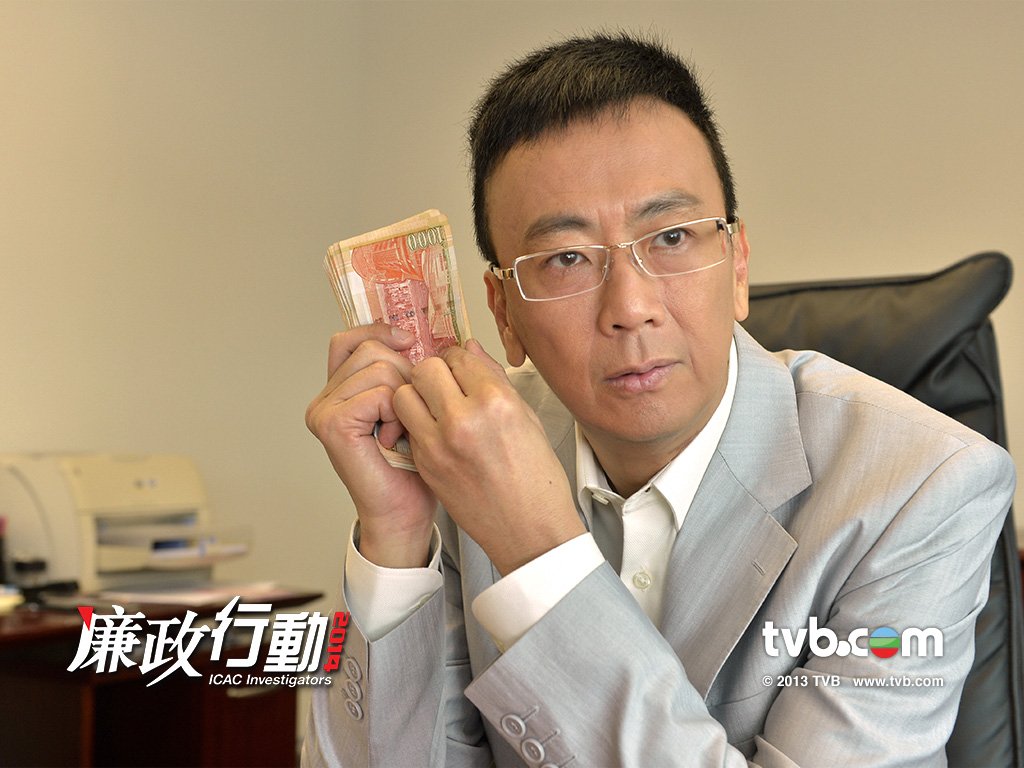 |
| Lawrence Cheng's character is based on Chan Kau-tai. |
Chan Kau-tai was the Chief Building Services Engineer of the Housing Department in Hong Kong. Between 2000-2001, he was investigated by the ICAC for taking bribes from contractors and material suppliers in exchange for helping them win government contracts or giving them favourable treatment during the inspection process. He was also accused of accepting money to help a friend's son get a job in the government. In total, he took in $3 million HKD from bribes.
During the trial, the ICAC famously presented video footage of Chan counting banknotes in his office. The video was captured using surveillance cameras installed in his office, with the permission of his superior. Although the legality of the ICAC's surveillance was questioned, the court ultimately admitted the tapes as evidence. Chan was convicted on 10 of 16 charges and sentenced to 7 years of imprisonment.
This was the story presented in ICAC Investigators 2014, but it is not the full story.
Chan appealed the ruling on the basis that the ICAC purposely concealed the DUI (driving under influence) record of one of the case's principal investigators. The credibility of that investigator's testimony and fairness of the trial was challenged. The appeal was allowed and a re-trial was ordered.
In addition, during the trials of the four suppliers, the ICAC was found to have violated the defendants' rights by seizing their documents without a search warrant and tape-recording their conversations with their lawyer. The latter is a violation of the legal professional privilege, which protects a person's right to seek legal advice without fear that their communications with their lawyer would be used against them. A violation of this right would severely impact the public's confidence in the justice system, thus the district court issued a permanent stay of proceedings. The stay of proceedings was appealed by the Department of Justice. The appeal was allowed and the cases were sent back for re-trial.
In the end, Chan was sentenced to six years of imprisonment, while two of the suppliers who had allegedly offered bribes were acquitted. In 2008, Chan was released on parole.

No comments:
Post a Comment